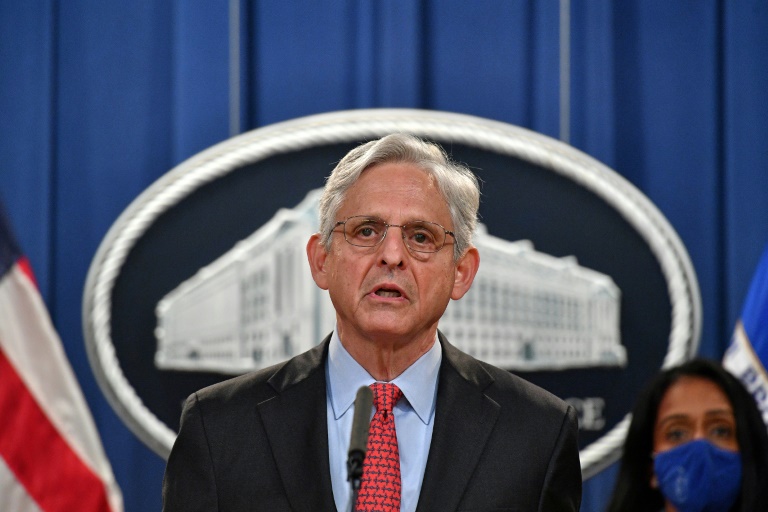The US Justice Department filed suit against Texas on Thursday over a law that bans abortion after six weeks of pregnancy, following through on a pledge by President Joe Biden to fight restrictions on the procedure in the Republican-ruled state.
“The (Texas) act is clearly unconstitutional,” Attorney General Merrick Garland told reporters.
“This kind of scheme to nullify the Constitution of the United States is one that all Americans, whatever their politics or party, should fear,” he said.
The Supreme Court, in a landmark 1973 case known as Roe v. Wade, enshrined a woman’s right to an abortion but Republican-led conservative states, notably in the south, have sought to roll back abortion through legislation.
The courts have regularly blocked the attempts to restrict access to abortion, but a Supreme Court shifted to the right by Donald Trump refused to block the Texas law, setting the stage for the Justice Department intervention.
The “Texas Heartbeat Act,” which took effect September 1, bans abortion once a heartbeat can be detected, which usually takes place at six weeks — before many women even know they are pregnant — and makes no exceptions for rape or incest.
The bill passed by Republican lawmakers in the country’s second largest state allows members of the public to sue doctors who perform abortions after six weeks or anyone who facilitates the procedure.
“Thus far, the law has had its intended effect,” Garland said. “Because the statute makes it too risky for an abortion clinic to stay open, abortion providers have ceased providing services.
“This leaves women in Texas unable to exercise their constitutional rights.”
Garland criticized the provision of the law that allows private citizens to bring civil suits to enforce the abortion ban and rewards them with $10,000 for a successful prosecution.
“The statute deputizes private citizens without any showing of personal connection or injury to serve as bounty hunters,” he said.
The Justice Department suit filed with the US District Court for the Western District of Texas seeks an injunction prohibiting enforcement of the law.
– ‘Dangerous and unjust law’ –
Biden last week lashed out at the Supreme Court’s refusal to block the Texas law and promised a “whole-of-government effort” to overturn it.
The court’s 5-4 ruling on the Texas bill was “an unprecedented assault on a woman’s constitutional rights” that “insults the rule of law,” he said.
Vice President Kamala Harris met with family planning groups, stressing that “the right of women to make decisions about their own bodies is not negotiable.”
Alexis McGill Johnson, president of the Planned Parenthood Federation of America, thanked Biden for seeking to “protect Texans from this dangerous and unjust law.”
“Right now patients across Texas are scared, they are confused, and they are being left with nowhere to turn to access safe, legal abortion,” she said.
Brigitte Amiri, deputy director of the Reproductive Freedom Project at the American Civil Liberties Union, whose suit seeking to block the Texas law was rejected by the Supreme Court, also welcomed the Justice Department move.
“We won’t rest until everybody can exercise their right to access abortion in Texas and across this country,” Amiri said.
Reacting to the suit, the office of Texas Governor Greg Abbott, a Republican, said “Texas passed a law that ensures that the life of every child with a heartbeat will be spared from the ravages of abortion.”
“Unfortunately, President Biden and his administration are more interested in changing the national narrative from their disastrous Afghanistan evacuation and reckless open border policies instead of protecting the innocent unborn.”
According to the ACLU, approximately 85 to 90 percent of the women who obtain an abortion in Texas are at least six weeks into pregnancy.
Roe v. Wade guaranteed the right to an abortion in the United States so long as the fetus is not viable outside the womb, which is usually not until the 22nd to 24th week of pregnancy.
The Supreme Court is due to hear a case in the coming months involving a Mississippi law that prohibits abortions after the 15th week of pregnancy, except in cases of medical emergency or a severe fetal abnormality.
The Supreme Court shifted to the right under Trump, who named three justices, giving conservatives a 6-3 majority on the panel.











